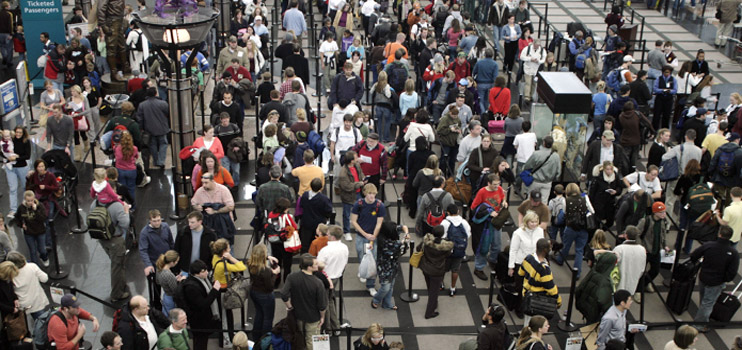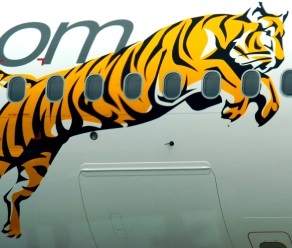Passengers, sick of queuing, demand more control
16 October, 2019
4 min read


Airline passengers have overwhelmingly indicated they are sick of queuing and delays at airport choke points and want more control over their journey.
The 2019 International Air Transport Association Global Passenger Survey of almost 11,000 passengers in 166 countries showed time was of the essence for most.
Eight out of 10 didn't want to wait more than three minutes to drop off a bag, while 79 percent thought 10 minutes of queuing at immigration or customs was enough.
Three quarters said they did not want to wait more than 10 minutes to pick up their bags.
Security screening and border control were again indentified as the biggest pain points for travelers with the removal of personal items (60 percent) and having to take out large electronic items (48 percent) the largest bugbears.
Four out of 10 were also annoyed by variations in ssreening processes at airport.
For this reason, nearly three-quarters of passengers gave a thumbs up to automated immigration, gates and kiosks.
More eficient queueing at the boarding gate, an end to bussing and more bin space were among the improvements passengers would most like to see airlines and airport to make.
An increasing number are also turning to personal technology to handle their travel but doubts remain about privacy and data security.
READ: Relief for tall pax as Air New Zealand introduces economy stretch
The survey showed the number of passengers saying they preferred to use their phone to check in topped 50 percent for the first time, up 4 percent from 2018 to 51 percent.
Using an airline app was also the preferred method of booking for passengers in North Asia, with almost a quarter booking this way, and the second most popular method in the Middle East.
One in four passengers booked through what was still the most popular booking method globally, airline websites, although this was less popular than in 2018.
More than 70 percent of passengers wanted to be kept informed about their journey through their smartphone with SMS still the preferred option.
However, a preference for receiving information through an app was now the choice for a third of travelers and was up 10 percent compared to 2016.
The survey found that 83 percent of passengers want to receive information on the status of their flight, 45 percent wanted information on their baggage with a similar proportion wanting information on wait times at security and border control.
Seven out of 10 of us are now willing to share more personal information, including biometric identifiers, in order to get more quickly through an airport.
Almost half would prefer to use biometrics instead of a paper passport and 30 percent would opt for using biometric token such as facial recognition to board a plane.
But privacy issues still worried some passengers.
“Passengers are willing to share more personal information if it removes hassle from their travel experience,’’ said IATA director general Alexandre de Juniac.
"But it’s clear that concerns over data privacy remain.
“While the majority of passengers want to use biometric identification instead of a paper passport, 53 percent of those that did not, said they were concerned about the security of their data.”
“Passengers need to be confident that their data is safe.”
Baggage tracking was another area where there was keen interest, with more than half of passengers saying they would follow the progress of their luggage if they were able to track it.
Some 46 percent said they would like to be able to track their bag and have it delivered to an off-airport location.
The good news: airlines and airports are already working on improved baggage tracking this through the introduction of Radio Frequency Identification (RFID) technology.
IATA said many of the survey results were covered by the New Experience in Travel and Technologies(NEXTT) Joint initiative by IATA and Airports Council International.
“Passengers have told us that they are looking to technology to improve their travel experience. That is what we are trying to deliver in cooperation with airports,’’ said IATA senior vice president airport and passenger cargo and security Nick Careen.
“Through our NEXTT initiative with ACI, we aim to deliver a seamless curb-to-gate experience for passengers.”
However, Careen emphasised that government support was also necessary for the program to succeed.
Next Article
3 min read
Virgin gets nod for Tiger deal

Get the latest news and updates straight to your inbox
No spam, no hassle, no fuss, just airline news direct to you.
By joining our newsletter, you agree to our Privacy Policy
Find us on social media
Comments
No comments yet, be the first to write one.
